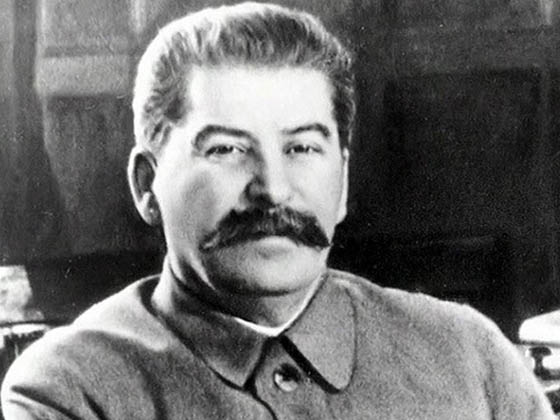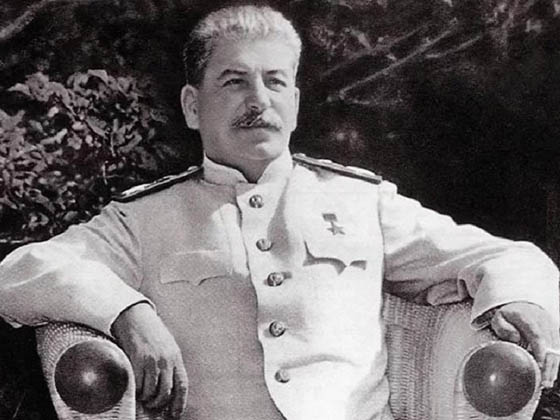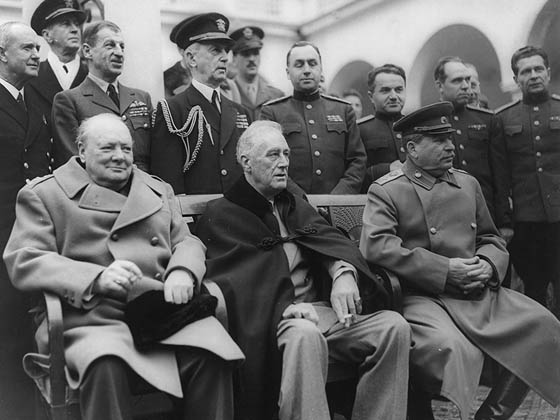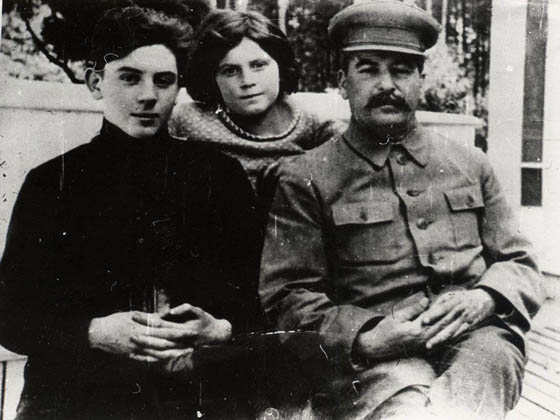Joseph Dzhugashvili (Stalin) ran the country from 1924 to 1953.
His real name was Joseph Dzhugashvili; Stalin was his party pseudonym. He was born on December 6th (18), 1878, or officially on December 9th (21), 1879, in Gori, Tiflis province. His party nickname was “Stalin” and “Koba” – that was the name of the noble hero from the novel Particide by A.Kazbegi, which Stalin liked a lot in his youth. His father was Vissarion Dzhugashvili, and his mother – Ekaterina (Ketevan) Geladze. Stalin was married twice: to Ekaterina Svanidze and Nadezhda Alliluyeva.
This Soviet statesman, political and military figure has a controversial reputation. His name is connected with the victory of the Soviet people in the Great Patriotic War, the development of Soviet industry, and brutal mass political reprisals.
Secretary General of the Central Committee of the All-Union Communist Party (Bolsheviks) since 1922, head of the Soviet Government (Chairman of the Soviet of National Commissars since 1941, Chairman of the USSR Council of Ministers since 1946, the Generalissimo of the Soviet Union (1945). Died in Moscow on March 5th,1953. His embalmed body was placed in the Mausoleum next to Lenin’s, but in 1961, after the 22nd Congress of the CPSU, it was removed from the Mausoleum and buried near the Kremlin wall.
The main events during Stalin’s rule:
- 1930-1950 – Period of political reprisals
- 1936 – Adoption of the second USSR Constitution
- 1939, September 1st – beginning of the Second World War
- 1941-1945 – the Great Patriotic War
- 1945 – Establishment of the United Nations Organization (United Nations).
Under Stalin, the party had successfully resolved the issues related to the construction of the foundation for a new socialist economy, and reorganization of all spheres of life. The victory of socialism in the USSR became the logical outcome of the creation of a new Constitution adopted in 1936 by the extraordinary 8th All-Union Congress of the Soviets. At this Congress Stalin delivered a report on the draft of the new Fundamental Law, stated the key changes that occurred in the country since the time of adoption of the Constitution in 1924, and amendments to the new draft law. Despite the democratic principles underlying the new Fundamental Law, its stipulations were mostly nominal, which was soon proved by a new wave of mass political reprisals.



